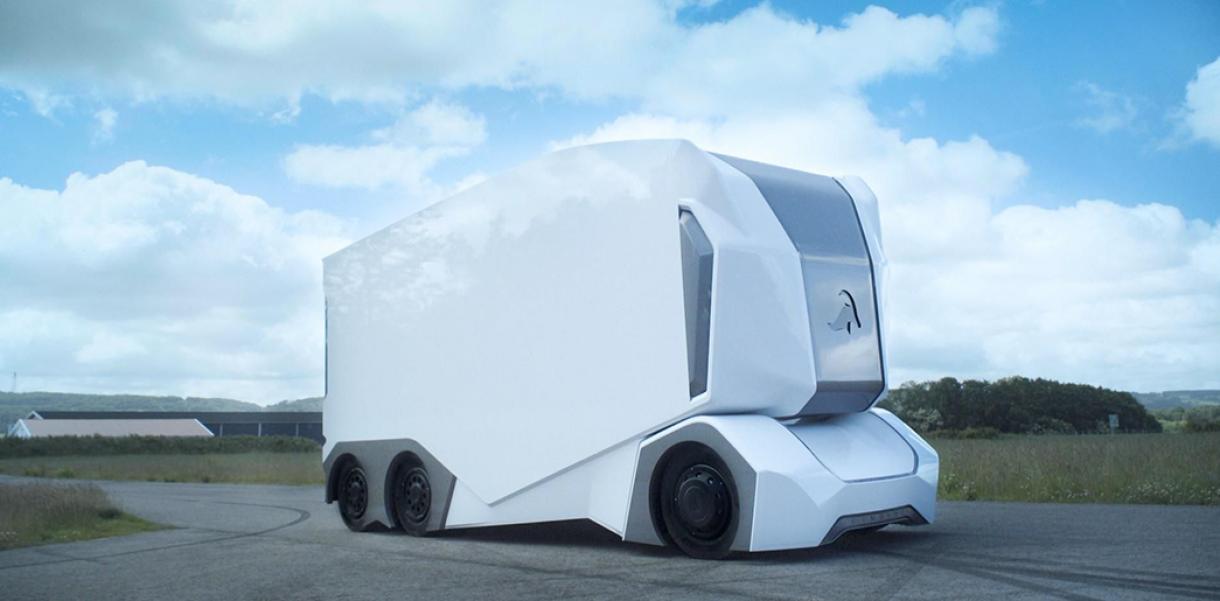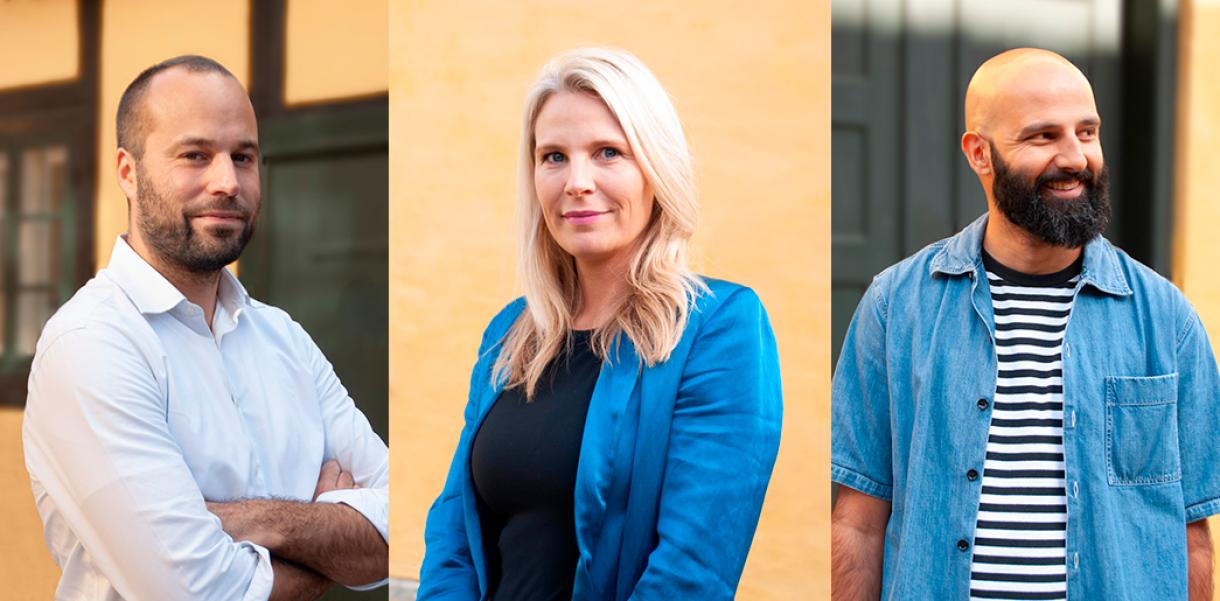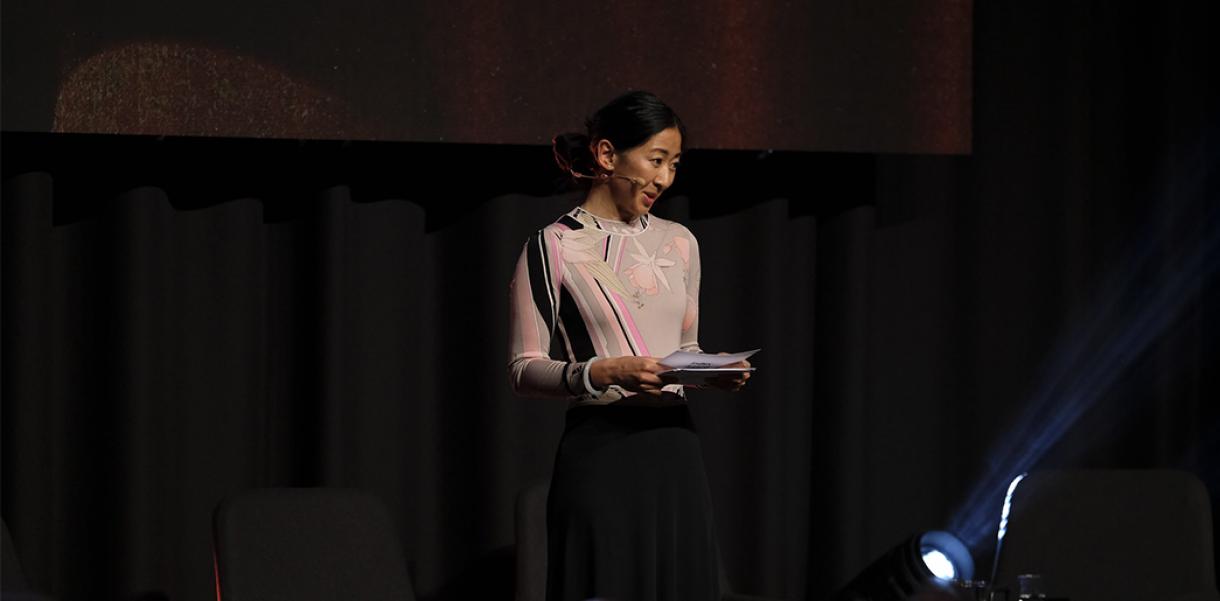What’s the design?
Mimica is a UK-based start-up creating the next generation of food expiry labelling. Their key product, Mimica Touch, is a tactile freshness label that mimics the spoilage of food by responding to temperature changes. When a food item should no longer be consumed, bumps can be felt on the label's surface, showing when food actually spoils. Mimica Touch can drastically reduce food waste by replacing outdated and often inaccurate ‘worst-case scenario’ expiry labels.
The hurdle
“I never thought I would start a company; I didn't have a single entrepreneur in the family,” explains Solveiga Pakštaitė, Founder of Mimica. Mimica Touch was the final major project of Pakštaitė’s design degree, and after graduating, she filed for a patent using leftover scholarship funds. Soon after, she received a call informing her that she’d won the prestigious James Dyson Award. And from there, things moved quickly – very quickly.
Suddenly the concept was all over the press and dozens of companies were reaching out to Pakštaitė: an overwhelming experience for the newly graduated designer. “I was just a 22-year-old kid with no clue,” she remembers. “These retailers were pressing: ‘How can we bring this forward?’ and I was saying, ‘What are you talking about? This is just a concept’.”
Pakštaitė knew she had to make Mimica into a business but had no idea how to do it. She connected with a business consultant who helped her apply for grants but soon realised that grants don’t build a business. “My decision making was very short-term which wasn’t going to build a strong company in 10 or 50 years,” she explained. “I was making decisions based on what's going to get us to next week or next month, which wasn't going to be sustainable.”
At one point before the company brought in investors, money was so tight that Pakštaitė actually asked her mother for the money she’d put aside for her wedding to pay wages. “I was really lucky she lent me that money,” she said. “At that moment, I knew I never wanted to be in that position again, to be that close to our cash running out.”
The strategy
Pakštaitė onboarded mentors to guide her through new territory and realised she needed to create a strong team and stop relying on grants. “I created a whole new strategy supported by investment, starting with raising a seed round,” she explains. “I needed to do that for my team."
Later, while raising funds, Pakštaitė met Lawrie Matthews and Laurence Kayson, who led a smart packaging startup, also focused on food waste reduction. After talking for three hours, she knew she needed to get them on board. “That was the best decision I’ve made,” she says. “Bringing on experts who not only have the right skill sets but, actually have a proven track record in the very industry that I wanted to succeed in.” Both started out as consultants and later accepted the CTO and CEO positions at Mimica.
This also meant that Pakštaitė stepped aside from being CEO. “Just because I started a company doesn't mean that I'm the right profile to be CEO,” she explains. “I'm a designer, who just really felt that Mimica should exist in the world. “I wasn't the right person to scale it to the international level to have the impact that it needs to have.”
Looking back, Pakštaitė believes her start-up journey has been quite unusual compared to others: ”Most other start-up companies I know are all very young people figuring it all out, coming across as cool hipsters in a warehouse,” she explains. “That’s not exactly the vibe of Mimica; we're a bit more laced up because we have really good experience on board."
To Pakštaitė, it’s obvious what made Mimica a successful start-up: “The light-bulb moment or ‘Eureka!’ was acknowledging that I have no clue what I'm doing and accepting as much help as possible.”
Tips from the designer:
- Share the weight – Recognise that every entrepreneur won’t, and doesn’t need to, fit the typical mould of a CEO. Just because you’re the founder, doesn’t mean you’re obligated to shoulder all the leadership, particularly if you have other strong leads in your team.
- Talk to the competition – Industries move forward when companies are willing to share their experiences and expertise. Talk to your competitors and, if possible, see them as collaborators to see how you can benefit from each other's knowledge or resources.
- Be aware of the internal overshare – Being transparent with your team is great, but it’s important to recognise when information is more harmful than helpful. Discuss with your team how much of the company nitty-gritty they’d like to be informed on. The answer might surprise you.
- On-board experience – There can be an expectation in start-up culture that everyone should be fresh-faced. It’s easy to start up but staying up requires experience from seasoned entrepreneurs.
- Embrace the unknown – Like many things in life, there’s no shame in not knowing the answer. Regardless of how simple the question is, asking for help can offer your ‘Aha!’ break-through for business.




